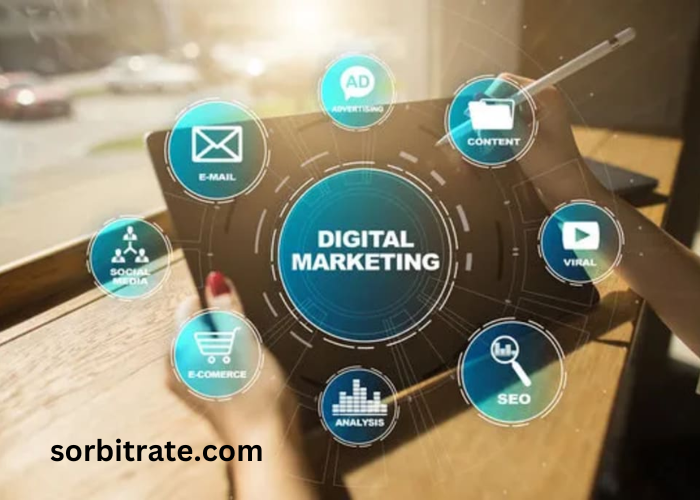In an era defined by rapid technological advancements and changing consumer preferences, staying ahead in marketing requires agility and foresight. Businesses must adopt future-ready marketing trends to maintain a competitive edge and meet the demands of tomorrow’s consumers. This article explores key marketing trends that can drive success in the evolving landscape.
Understanding the Importance of Future-Ready Marketing
Future-ready marketing involves anticipating trends, leveraging new technologies, and aligning strategies with emerging consumer behaviors. It ensures businesses can adapt quickly and effectively to market shifts, keeping them relevant and competitive.
The Rise of Artificial Intelligence in Marketing
Artificial intelligence (AI) is transforming marketing. From chatbots and personalized recommendations to predictive analytics, AI helps businesses understand and engage customers better. Implementing AI tools enhances efficiency and delivers data-driven insights.
Leveraging Voice Search Optimization
With the growing popularity of voice-activated devices, optimizing content for voice search is essential. Marketers should focus on conversational keywords, natural language, and local search optimization to cater to voice-enabled queries.
Embracing Video Marketing Trends
Video content continues to dominate. Short-form videos on platforms like TikTok and Instagram Reels, as well as long-form educational videos on YouTube, offer diverse opportunities to engage audiences. Live streaming and interactive videos further boost engagement.
Personalization as a Key Strategy
Consumers expect tailored experiences. Personalization, driven by data insights, allows marketers to create relevant content and offers. From email marketing to product recommendations, personalization fosters loyalty and improves conversions.
Exploring Augmented Reality (AR) and Virtual Reality (VR)
AR and VR are reshaping how consumers interact with brands. Virtual try-ons, immersive experiences, and AR-enhanced shopping create engaging customer journeys. Marketers should explore these technologies to stand out in competitive markets.
Sustainability and Ethical Marketing
Sustainability is increasingly important to consumers. Transparent, ethical marketing practices and eco-friendly initiatives resonate with modern audiences. Highlighting sustainable efforts builds trust and brand loyalty.
Data Privacy and Ethical Marketing Practices
With rising concerns about data privacy, businesses must prioritize transparency and compliance. Building trust through ethical data collection and respecting consumer privacy ensures long-term customer relationships.
Social Commerce and Shoppable Content
Social media platforms are evolving into e-commerce hubs. Features like Instagram Shops, Pinterest Shopping, and TikTok’s in-app purchasing enable seamless shopping experiences. Integrating social commerce into strategies enhances conversions.
The Power of Influencer Marketing
Influencer marketing continues to grow as a powerful tool. Collaborating with influencers who align with brand values enhances authenticity and expands reach. Micro-influencers, in particular, offer high engagement rates.
Omnichannel Marketing for Seamless Experiences
Consumers expect consistent experiences across channels. Omnichannel marketing integrates physical and digital touchpoints, ensuring seamless customer journeys. This approach increases satisfaction and loyalty.
Harnessing the Potential of Blockchain
Blockchain technology offers transparency and security in marketing. From verifying ad metrics to safeguarding customer data, blockchain ensures trust in marketing campaigns. Businesses should explore its applications for competitive advantage.
Gamification in Marketing Strategies
Gamification enhances engagement by incorporating game-like elements into marketing campaigns. Loyalty programs, interactive quizzes, and contests motivate participation and foster deeper connections with audiences.
The Evolution of Content Marketing
Content remains king, but its forms are evolving. Interactive content, such as polls and calculators, alongside long-form, value-driven articles, keeps audiences engaged. Storytelling and user-generated content further boost authenticity.
Preparing for the Metaverse
The metaverse represents the future of digital interaction. Brands can leverage this virtual space for immersive advertising, virtual storefronts, and unique consumer experiences. Early adoption positions businesses as innovators.
Conclusion: Thriving in the Future of Marketing
Future-ready marketing trends offer exciting opportunities for businesses to innovate and grow. By embracing technologies like AI, AR, and blockchain, and prioritizing personalization, sustainability, and ethical practices, marketers can gain a competitive edge. Staying proactive and adaptable ensures long-term success in an ever-evolving landscape.

